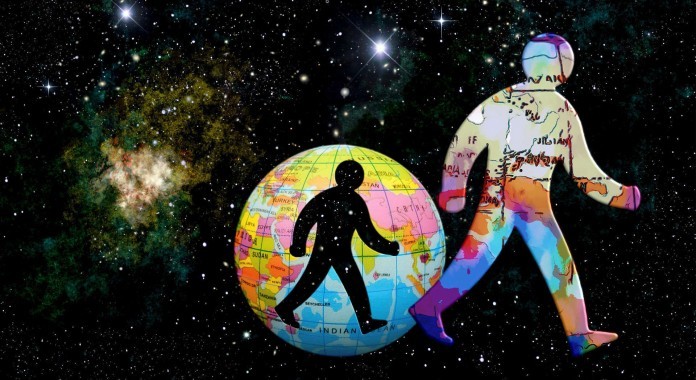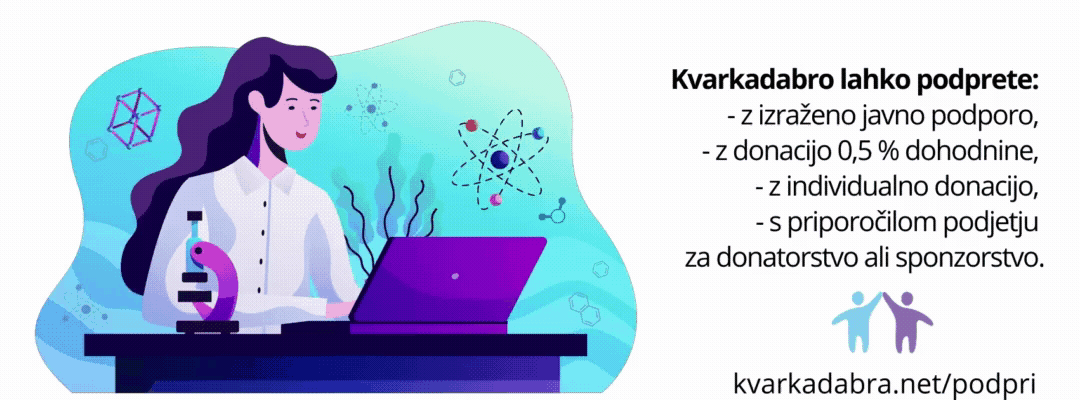Odbor za znanost in tehnologijo v britanskem parlamentu je pravkar objavil poročilo z naslovom Science communication and engagement (pdf). V dokumentu ugotavljajo, da si ljudje zelo želijo zanesljivih informacij o vplivu znanstvenih spoznanj na vsakdanje življenje, a so hkrati prepričani, da mediji velikokrat dosežke znanosti predstavljajo preveč senzacionalistično. Zaupanje v poročanje o dosežkih znanosti ni najboljše, ker se ljudem zdi, da se od njih pričakuje, da bodo slepo zaupali vsemu, kar jim predstavijo kot “znanstveno potrjeno”. V poročilu predlagajo tudi konkretne ukrepe, da se bi se stanje izboljšalo.
The Science Communication and Engagement Report found that people have a strong desire to know how science affects their daily lives. However 71% of people believe the media sensationalises science, and 67% say they have no option but to trust those governing scientific information. Just 28% believe that journalists check their facts when reporting scientific matters.
Remarkably the Committee also found that the ‘Boaty McBoatface’ incident, where a competition to name an arctic polar ship created a social media storm, actually increased public engagement with science, and demonstrates how audacious ways of stimulating dialogue can be of public benefit.The Science Communication and Engagement Report recommends that:
– The Government must not deliberately conflate scientific considerations with political, financial or legal matters when making policy decisions, and the Cabinet Office ‘Green Book’ on public consultations must make it clearer how scientific evidence is considered independently of wider matters.
– Media organisations must take greater care to avoid ‘false balance’, where opposing scientific views are presented with apparent equal weight even if the overwhelming majority of scientific evidence is weighted on one side. The Committee found this has been particularly evident in reporting around climate change.
– The Committee takes a dim view of the practice or organisations issuing embargoed press releases prior to the availability of fully peer reviewed journal reports, as this is impeding journalist’s ability to carry out proper fact checking or to challenge the claims made.
– The Government must ensure a more robust redress mechanism in cases where scientific evidence is mis-reported by the media, which is lacking in the current Leveson reforms.
– Two key programmes to promote public dialogue and engagement in policy making, Sciencewise and the National Coordinating Centre for Public Engagement should be extended including through adequate funding in the Government’s Industrial Strategy.
Dodajamo še komentar poročila, ki je bil objavljen na strani The Conversation:
How scientists should communicate their work in a post-truth era
Andy Miah, University of Salford
It’s not an easy time for scientists to talk to the wider public. The US president, Donald Trump, has called global warming “bullshit” and a “Chinese hoax”. In the UK, leave campaigner and MP Michael Gove famously declared that people “have had enough of experts”. But now UK MPs have published a report arguing that there should greater backing for public dialogue and engagement with science. ![]()
The new report, published by the UK House of Commons Science and Technology Committee, follows a 12-month inquiry into science communication. It argues that scientists need support to be more prominent as communicators, more strategic in how they develop relationships with the media and need to engage more with the general public to ensure that science benefits everyone.
Perhaps the most important obstacle to this is time. Most scientists – especially those working in universities – are not given time for science communication. So work like this is often seen as voluntary or added value. Without proper recognition, there will never be a serious, strategic science communication.
Scientists have a wide range of opportunities to engage with the public and communicate their knowledge. For instance, there is a worldwide network of “cafes scientifique”, which take researchers into cafes, pubs and other unusual spaces to talk about their research. This is often the best way to engage with the public, because it happens in a place where they are comfortable. And even if a presentation doesn’t in itself go far enough to convince people that science is worthwhile, the message might get across better over a drink after the talk.
The report also highlights the need for the government to be more visibly involved with science communication. Part of this involves providing more funding for science communication – but the report also argues that public engagement needs an overhaul, with less talking at the public and more public involvement. It says good practice includes initiatives such as using “citizen juries” in science governance, in which members of the public are invited to help policymakers reach decisions. This is a great idea. If the public felt more engaged in science and developed a proper understanding of how it operates, the chances are their trust in expertise and evidence would naturally increase.
Changing media landscape
The report also has a lot of recommendations for science journalists, who obviously have an important role and a great responsibility in driving what the wider public thinks about science.
Of course, journalism has suffered significant cuts in recent years – including science journalism. The number of science journalists has been steadily declining and the content is increasingly based on press releases.
The report cites evidence showing that only 28% of people believe that science journalists check the “reliability of research findings before they write about them”. It also notes that reporters typically cover new scientific findings rather than the general methods and principles of science. This represents a problem to the MPs who compiled the report who believe that an understanding of methods is crucial in order for journalists to make sound judgements about the credibility of findings. In response to the inquiry, the BBC’s science editor said the organisation had run courses for reporters on this area.
Perhaps more worrying is the tendency of many journalists to strive for “balance” – presenting each opinion alongside the opposing view – at any cost. This is well-meaning but can be dangerous – leading, as it can, to scientific expertise being treated as a political opinion. In science there are many conclusions that the vast majority of scientists agree on – and these are grounded in strong scientific evidence. So giving voice to a maverick scientist may give the false impression that there is divided opinion on a topic. This has happened several times in the past, such as with the MMR vaccine and climate change.
The report argues that the media needs a more sophisticated way of ensuring that experts quoted in articles about science really are experts. I’d agree. In a world where trust in expertise has been lost, it is crucial that we get across the message that science is more than just another opinion.
The backdrop to the MPs’ inquiry was a 2014 government report suggesting that a loss of trust in the media has diminished the credibility of science journalism. But three years later, it is short sighted to focus on inadequacies within traditional media. Of bigger concern is how content within social media platforms masquerades as journalism, or how social media’s aggregation of journalism content makes it more difficult to distinguish truth from falsehood.
It is also crucial that politicians are mindful of the consequences for science of dismissing journalism as “fake news”, which is luckily still unusual. There may be a need for politicians to undertake training in understanding the scientific method to help them distinguish fact from fiction.
Scientists and the public need the media more than ever to help navigate this increasingly complex information ecosystem – but this also means more effectively protecting the press as its ad revenue shifts over to social media platforms, causing even greater limitations in their capacity to deliver the kind of science journalism we desperately need.
It is fitting then, that on April 22, scientists around the world want everyone – not just scientists – to march for science, because everyone benefits from science and from scientists speaking their mind. As the world embraces a more dynamic practice of “citizen journalism”, scientists must be a part of this and be adequately prepared to get involved with public debate about their work, without fear of reprisals.
Andy Miah, Chair in Science Communication & Future Media, University of Salford
This article was originally published on The Conversation. Read the original article.

















